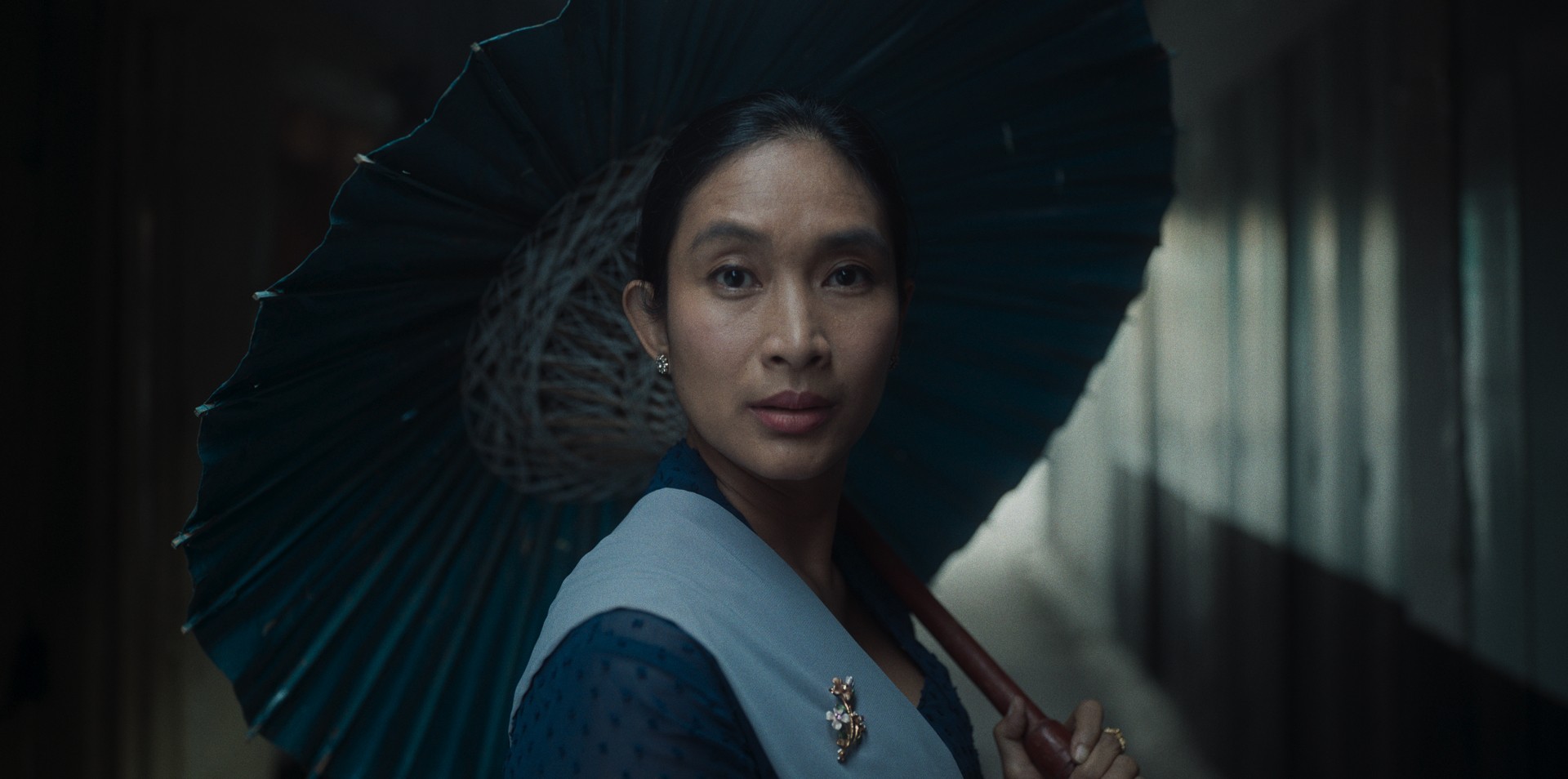In Before, Now & Then the social and political upheavals of 1960s Indonesia provide a hardened backbone to what is otherwise a tale of longing and simmering romance. It’s the fifth work by Kamila Andini, an Indonesian filmmaker whose dreamy 2017 film Seen and Unseen became a festival darling, screening in Berlin and Toronto that year to acclaim. Before, Now & Then sees her return to the German capital––premiering in competition this week, a sharp ascendency––with her most ambitious film yet. Drawing a number of deeply felt performances from her cast, it is an aching period piece, if frankly staid, that comes complete with many of the genre’s most reliable tropes: sharp intakes of breath; glances stolen through laced curtains; and love, as ever, in opprobrium.
You don’t need to have seen the complete works of Merchant-Ivory to know its tricks-–and new locations (Indonesia, no less) do have a way of breathing fresh life into these things. It is, yes, a film about trauma. Andini, who also wrote the screenplay, begins her story with a prologue set during the communist purge in the late 1960s. Curiously, Andini decides not to spell out details of that notoriously bloody coup (there is no opening text and scant exposition), instead zooming in on the story of a woman named Nana (Happy Salma) at the moment when she witnesses her father’s murder. Her husband, who fought on the other side, has disappeared into the forest and the gang leader responsible for both losses is looking to marry her. Luckily, she gets out.
With all its blood and encroaching terrors, that opening is interesting for suggesting a very different kind of film, and Andini’s next curious choice is to completely forgo what were surely years of hardship for Nana in the aftermath, skipping forward to a more comfortable time in her life. If we are never explicitly shown the struggles she faced in those intervening years, they hang over Andini’s film and palpably through Salma’s nuanced performance, as well as in the character’s nightmares, which Andini includes many off (perhaps one or two too many.) This Nana is now the second wife of a wealthy and decent Sundanese man (Arswendy Bening Swara) who is a good few years her senior. It is a life of relative comfort though she must keep her secrets and past hidden. (“Be like water,” the survivor reminds herself, looking into a mirror.)
Paradoxically, if Before, Now & Then is lacking something it is a sense of conflict. There is tension, even horror, in Nama’s dream sequences; and she holds a flame for her old love, but her life and Andini’s film is short on sharp edges. The director threatens to rock the boat by reintroducing Nana’s old friend (Laura Basuki), who we met in the prologue. They lock eyes in a lovely moment through the bus window as Nana rides to the market and are soon reconnected. You smell a trace of peril, yet none arrives. (Additionally, Andini’s aesthetics and score––all slow-motion, back alleys, cigarette smoke, and string music––lean a bit too close for comfort to those of In the Mood for Love.)
It is, regardless, a gorgeous movie. Shot by Batara Goempar, Before, Now & Then finds no lack of beauty in the cyan hues of Nama’s spacious house. There is also a lovely jukebox soundtrack of contemporaneous pop music from the region, as well as live performances of traditional music filmed on Nama’s spacious porch. Even more crucially, perhaps, the world outside her affluent household feels tactile, with rich street scenes and market places that convincingly bustle with daily life. Yet for a film that begins with a ruthless decapitation it is relentlessly well-mannered: all ointment, no flies.
Before, Now & Then premiered at the 2022 Berlinale.

